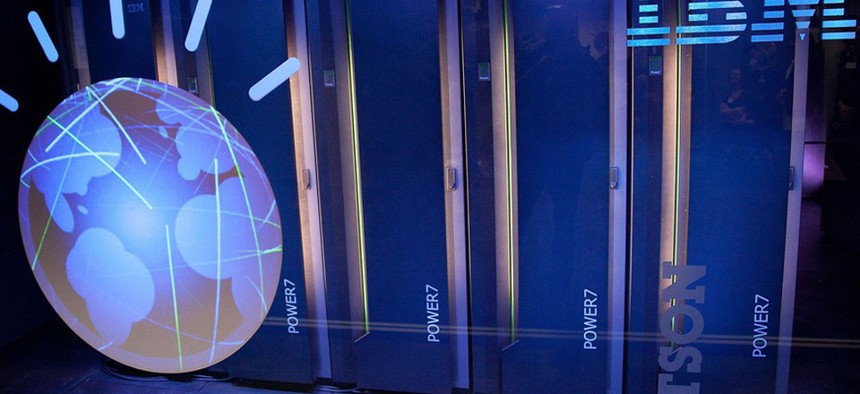
International Business Machines
Watson, the IBM Supercomputer, Might Replace the Loudmouth in Your Meetings
Watson was able to make further suggestions on companies to eliminate from the group of potential targets, essentially generating a shortlist.
While plenty of modern conference rooms are outfitted with technology, IBM is imagining a future in which computers figure into office meetings not only as tools but as active participants.
According to the MIT Technology Review, IBM is testing the idea at a lab where everything said in a demo room lined with microphones can be transcribed, and in some cases synthesized, by Watson, the Jeopardy! champion supercomputer. Participants can ask Watson for something as simple as a statistic, or as complex as a list of acquisition targets based on its understanding of a pre-meeting strategy memo and a set of verbal conditions (“Watson, show me companies between $15 million and $60 million in revenue relevant to that strategy” is an example from the article).
In the demo, Watson was able to make further suggestions on companies to eliminate from the group of potential targets, essentially generating a shortlist. In time, the software might be able to log contributions of different people to a meeting, or fact-check statements.
A common complaint about meetings is that they end up being a massive time suck. One study found that having a weekly executive committee meeting creates a total of 300,000 hours of prep work and meeting time, and tends not to accomplish much, serving mainly to rehash old information or to communicate the viewpoints of a few particularly assertive people. It’s easy to imagine a system like Watson helping on both fronts, proving a neutral source of data or unbiased opinion to move discussions along when they stall, and removing some of the need to prepare facts and figures that a computer can more readily access.
The big challenge is whether IBM’s Watson technology, which already is being used by doctors, insurers, and educators, can be facile enough with language and transcription to make the computer a consistent and useful participant in meetings, rather than a gimmick or bystander.
If Watson can eliminate even a portion of the time people spend prepping for meetings, awkwardly searching a laptop for the right file or figure, and cut down on the number of PowerPoint hours endured, it’d be a vast improvement on the status quo, and a compelling reason to explore the idea of extending meeting invitations to non-human participants.






